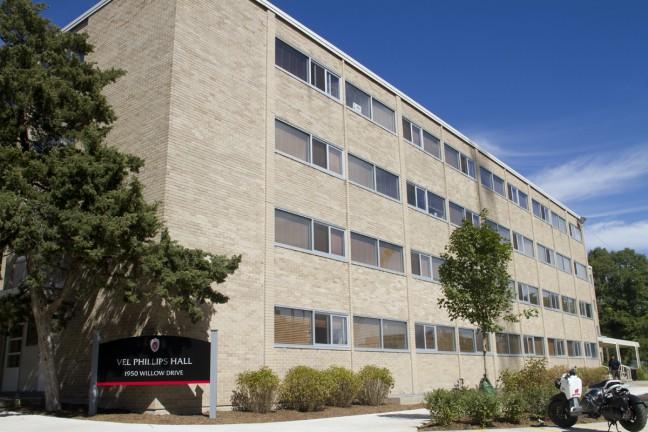People do not need to rush off and sign leases to live off campus for next fall today, tomorrow or anytime soon. In fact, coming from first-hand experience, signing a lease any time soon may not be the best choice.
I am currently in my second year of living on campus. Living off campus in a house or an apartment comes with its advantages, but I contend that the advantages of staying on campus in the dorms one more year outweigh that of living off campus.
First, let me say that everyone with a WiscMail will continue to get emails from apartment complexes incessantly for the remainder of the year and into the summer. However, if finding a place presented a serious problem, these companies would not be inundating our emails with pleas and dire warnings of not finding a place to live. Someone from a class, student org or residence hall will probably know of openings and may offer an invitation to come live with them. Thus, the pounding across sidewalks while running in and out of open houses — though the ones that offer free food might be worth visiting — may never need to happen.
As a freshman, I lived in the substance-free residence hall where one does not have to deal with the darker side of drinking. Someone once told me that college students behave maturely — well, sometimes. In the dorms, someone else gets to be in charge of dealing with the avid drinkers and the ill-behaved. That responsibility falls to the house fellows, who are trained to handle such problems.
Living on campus for two years opened my eyes to the dorms’ distinct advantages. The first, and most likely the highest, in ranking of importance, is food. Nearly every dorm neighbors a dining hall of some sort. With the exception of a few holidays when you will most likely be home anyway, somewhere on campus exists a dining hall to feed you. The 15 percent discount on food that comes from living in the dorms also comes in handy — ramen can be considered a thing of the past.
Other advantages of living on campus include easy access to many people, including professors and TAs, and to important places on campus: libraries, classes, the sports and recreational facilities. Living on campus means that between classes you probably can run back to the room to retrieve a forgotten item, indulge in a quick power nap or grab a snack out of the fridge, which the university generously provides for each room. The convenience which comes from living on campus cannot be duplicated.
Chores are hardly a moment’s concern when living on campus. Aside from a small room and, in some cases, a bathroom, nothing has to be cleaned by the dorm residents. A janitor gets paid to do the rest. Additionally, one must only wash their own dishes — not other guy’s who left the cereal to coagulate in bowls on the table, floor and sink and forgot to put the milk back in the fridge. Dorm living means no floors to wash, no windows to clean, no major dusting or vacuuming to do and no yard work. Students can spend time that would have been spent cleaning doing more entertaining activities.
I do not want to neglect to mention the amazing array of pre-planned activities for housing residents. The house fellows do a fabulous job arranging meals, lectures, karaoke and off campus activities as well as trips, parties and film nights. All of these activities come with a ready-made group of participants. Rarely a week passes without something to do in the dorm.
I cannot speak to living off campus because that experience does not exist for me. I made plans and have signed a lease to live off campus next fall. This decision does not reflect negative experiences of living on campus; I simply feel the need for a change. But for now, here I live, on campus and I admit the convenience, activities and returning friends makes living here pretty great.














